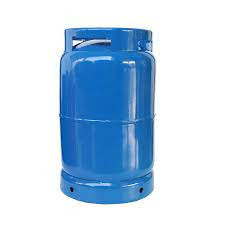- 5946
- 0
Sharing Ideas and Updates on LPG in Nigeria and related information to enable effective collaboration within the LPG Value Chain
Challenges And Opportunities In Nigeria's LPG Distribution Industry

The LPG (Liquefied Petroleum Gas) distribution sector in Nigeria is currently experiencing a mix of challenges and opportunities as it evolves to meet the rising demand for cleaner and more efficient energy sources. This blog post looks into the key factors influencing the business landscape for LPG distributors in Nigeria.
Challenges
One of the foremost challenges faced by LPG distributors in Nigeria is the effective management of LPG tanks and cylinders. To ensure a consistent supply to customers, distributors must maintain a sufficient stock of complete gas cylinders at all times. This requires a substantial initial capital investment, as well as the operational capacity to manage and transport these cylinders efficiently.
Government regulation represents another challenge in the LPG distribution business. Changes in government policies and pricing decisions can significantly impact the industry's stability. For instance, sudden increases in LPG prices can deter some consumers from using gas, resulting in reduced sales for distributors.
Competition is another hurdle for newcomers to the LPG distribution sector. Building brand recognition in a market dominated by established players can be a daunting task. New entrants often need to invest considerable time and resources in marketing and building a strong brand identity.
The choice of location is a critical factor for success in the LPG distribution business. Distributors need to strategically position their businesses to be in proximity to both consumers and the primary gas market. This strategic placement helps reduce transportation costs and ensures quicker access to customers.
Safety is paramount in the LPG distribution industry due to the highly flammable nature of liquefied petroleum gas. Distributors must implement stringent safety measures and provide adequate training to employees to prevent accidents and ensure the safe handling of gas. "Refer to Standards Organisation of Nigeria ( SON) NIS 555 2014 for the Nigeria industrial Standards for LPG specification and NIS 69 2013 for Nigeria industrial standards for cylinder specification.
Securing funding is another challenge for entrepreneurs looking to enter the LPG distribution sector. Considerable capital is required for establishing and operating an LPG distribution business, including purchasing the product (LPG) and setting up the necessary infrastructure.
Opportunities
Despite these challenges, the LPG distribution industry in Nigeria offers several promising opportunities for entrepreneurs and investors.
The Nigerian government is actively pushing for the adoption of LPG as a cleaner and more sustainable cooking fuel. This commitment to promoting LPG usage is creating a growing market for distributors. As more Nigerians embrace cooking gas, there is a significant profit potential for LPG distributors.
In addition to gas distribution, there is an opportunity to tap into the gas value chain by selling LPG cylinders and related accessories alongside gas distribution. Offering a comprehensive service can attract more customers and generate additional revenue.
Understanding the rising demand for LPG in households is key to capitalizing on the opportunities in the market. Nigeria's large average household size, with approximately six people per family, means a substantial customer base for LPG distributors. As more households make the switch to cleaner cooking fuels, the demand for LPG continues to rise.
Furthermore, the government's efforts to reduce deforestation and conserve natural forests by promoting LPG usage present an opportunity for smart entrepreneurs. LPG distribution not only benefits the environment but also helps meet the energy needs of urban and rural communities.
Way Forward
To succeed in the LPG distribution business in Nigeria, entrepreneurs should consider locating their businesses closer to customers and increasing advertising efforts to build brand recognition. Conducting thorough market research, securing funding, and performing feasibility studies are crucial steps in establishing a successful LPG distribution operation.
Learning from established industry players and adopting best practices can significantly enhance the chances of success in this evolving market. While the challenges are real, the opportunities presented by Nigeria's growing demand for LPG make the LPG distribution business an attractive venture for those willing to navigate this dynamic landscape.
In conclusion, Nigeria's LPG distribution industry offers both challenges and prospects, with entrepreneurs well-positioned to benefit from the increasing demand for cleaner cooking alternatives when armed with the right strategies and market insights.
















0 Comment.